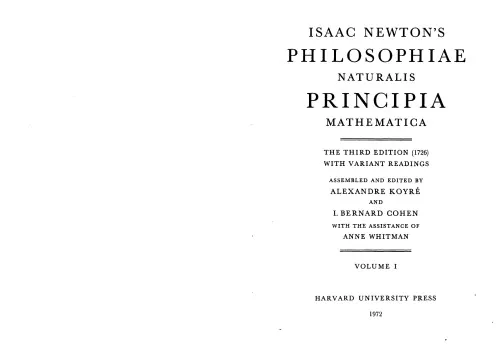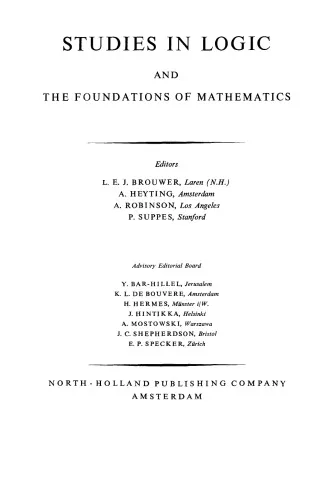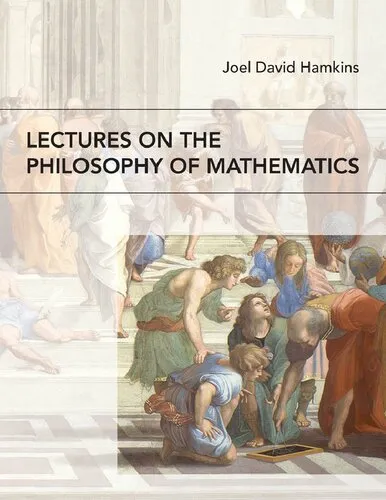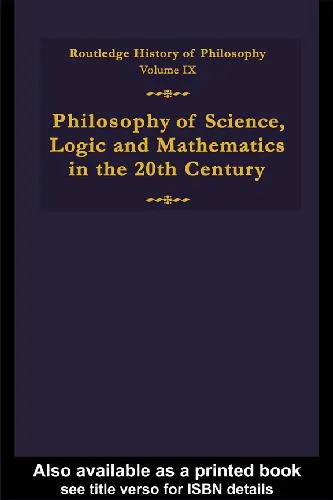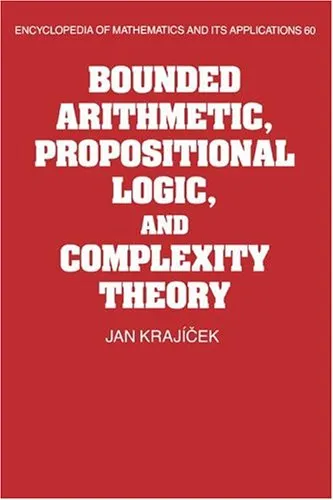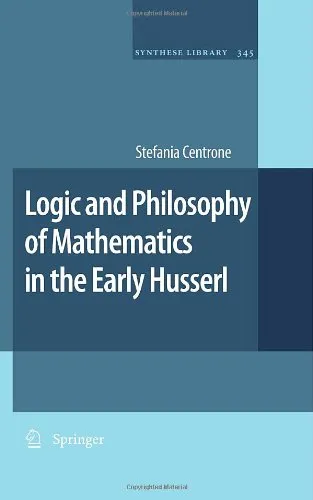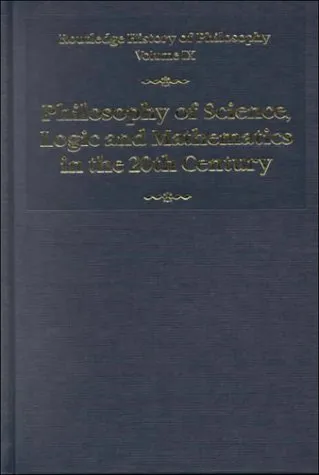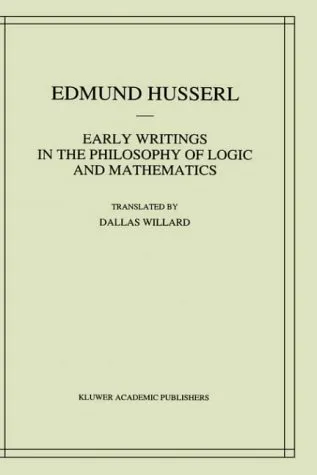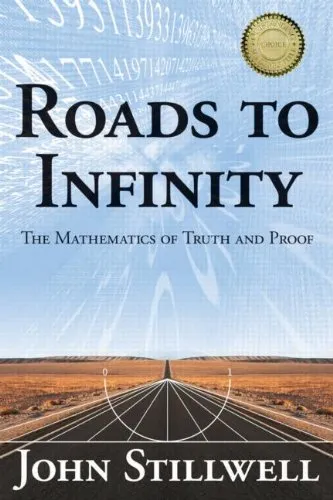Principia Mathematica to *56
4.5
بر اساس نظر کاربران

شما میتونید سوالاتتون در باره کتاب رو از هوش مصنوعیش بعد از ورود بپرسید
هر دانلود یا پرسش از هوش مصنوعی 2 امتیاز لازم دارد، برای بدست آوردن امتیاز رایگان، به صفحه ی راهنمای امتیازات سر بزنید و یک سری کار ارزشمند انجام بدینکتاب های مرتبط:
معرفی کتاب 'Principia Mathematica to *56'
کتاب 'Principia Mathematica to *56' یکی از برجستهترین آثار فکری قرن بیستم است که توسط آلفرد نورث وایتهد و برتراند راسل به نگارش درآمده است. این کتاب، پایهگذاری نوینی برای منطق ریاضی فراهم میکند و به ساختار و اصول اساسی ریاضیات میپردازد.
خلاصهای از کتاب
این کتاب تلاشی است جهت پیشبرد منطق ریاضی و پایهگذاری آن بر اساس قوانین اصولی و منطقی. 'Principia Mathematica to *56' به بررسی و تحلیل پایههای ریاضیات به شکل منطقی و صوری میپردازد. نویسندگان در این کتاب سعی دارند تا درک جدیدی از هویت قضایا و اثباتهای ریاضی فراهم آوردند، به طوری که تمامی گزارهها و حقایق ریاضی از یک نظام منسجم و بدیهی نتیجهگیری شوند. از این رو، صحت این نتایج مبتنی بر روشهایی است که مفاهیم پیچیده ریاضی را به قضایای بنیادی و کاملاً دقیق تحلیل میکنند.
نکات کلیدی
- تقویت پایههای منطق ریاضی به طرقی که قوانین اصولی و بدون تناقض از آنها قابل استنتاج باشد.
- تلاش برای فرمالیزه کردن ریاضیات و ثابت کردن این که ریاضیات خود میتواند به صورت یک مجموعهی کامل از قضایای منطقی تعبیر شود.
- اثبات قضایا با استفاده از روشهایی که منطق جدیدی به دست میدهند و کمک میکنند تا از تناقضات موجود جلوگیری شود.
جملات مشهور از کتاب
یکی از بزرگترین دستاوردهای ما اثبات مجدد این است که ریاضیات را میتوان از اصول بدیهی، بدون هیچگونه استثنا، نتیجه گرفت.
زبان منطقی ما باید به گونهای باشد که بتوان تمامی علوم را در قالب آن بیان کرد.
چرا این کتاب مهم است؟
کتاب 'Principia Mathematica to *56' بنیانگذار نظامی نوین برای مطالعه منطق و ریاضیات است که تأثیرات عظیمی بر فلسفه و علوم ریاضی به جا گذاشت. این اثر برای مطالعهگرانی که به دنبال درک عمیقتری از اصول منطق و ریاضیات هستند، از اهمیت خاصی برخوردار است. علاوه بر این، کتاب به جای آوردن یک چارچوب فکری جدید کمک کرد که موجب پیشرفتهای علمی و منطقی گسترده شد. از جنبههای قابل توجه این اثر، تلاش برای نهادینهسازی اصولی است که قادر باشند به سؤالات بنیادی و چالشبرانگیز ریاضی، پاسخ دهند.
Introduction to 'Principia Mathematica to *56'
Written by Alfred North Whitehead and Bertrand Russell, 'Principia Mathematica to *56' stands as a monumental work in mathematical logic and philosophy. This masterpiece endeavors to establish a ground-breaking foundation for mathematics using logic, and is a cornerstone of 20th-century analytic philosophy.
Detailed Summary of the Book
The 'Principia Mathematica' was published in three volumes, with the core objectives encapsulated in the first few sections, leading to *56. Whitehead and Russell aimed to demonstrate that mathematics could be derived from logical foundations. Their effort was inspired by earlier works in logic but pushed further, seeking to define all mathematical concepts using a small number of axioms and inference rules.
Volume One begins with the construction of a logical language suitable for deriving arithmetic truths. The authors meticulously define numbers, sets, classes, and relations, using a notational system known as the 'Theory of Types' to prevent paradoxes such as Russell’s paradox. By *56, the authors reach the definition of cardinal numbers, leading towards constructing the familiar numbers used in arithmetic.
Key Takeaways
- Introduced a formal language that influenced future logical and mathematical research.
- Demonstrated that logical reasoning could be applied to argue about mathematical truths.
- Presented the Theory of Types, crucial for avoiding self-referential paradoxes.
- Highlighted the significance of consistency and completeness in mathematical systems, influencing later works by Gödel.
- Provided groundwork for further explorations in set theory, philosophy of mathematics, and computer science.
Famous Quotes from the Book
"The purpose of this work is to show that all pure mathematics follows from purely logical premises and uses only notions that are definable in terms of logic."
"Mathematics, rightly viewed, possesses not only truth, but supreme beauty."
Why This Book Matters
The 'Principia Mathematica' not only represents a peak in mathematical logic but also signifies a paradigm shift in understanding the principles upon which mathematical truths are built. In their pursuit, Whitehead and Russell laid a foundational stone for the philosophy of mathematics, challenging existing views and inspiring future developments in both logic and mathematics.
This work is significant because it directly impacted the development of modern computational theories, as seen in the framework of algorithms and computer languages arising from logical systems. The heavy reliance on formal languages and axiomatic systems presaged elements of programming languages and the architecture of computers.
Additionally, by addressing issues of consistency and completeness, the 'Principia Mathematica' set the stage for Kurt Gödel's Incompleteness Theorems—one of the most intellectual achievements of the 20th century. As such, it remains not only a critical academic reference but also a source of philosophical inquiry into the foundations of knowledge.
دانلود رایگان مستقیم
شما میتونید سوالاتتون در باره کتاب رو از هوش مصنوعیش بعد از ورود بپرسید
دسترسی به کتابها از طریق پلتفرمهای قانونی و کتابخانههای عمومی نه تنها از حقوق نویسندگان و ناشران حمایت میکند، بلکه به پایداری فرهنگ کتابخوانی نیز کمک میرساند. پیش از دانلود، لحظهای به بررسی این گزینهها فکر کنید.
این کتاب رو در پلتفرم های دیگه ببینید
WorldCat به شما کمک میکنه تا کتاب ها رو در کتابخانه های سراسر دنیا پیدا کنید
امتیازها، نظرات تخصصی و صحبت ها درباره کتاب را در Goodreads ببینید
کتابهای کمیاب یا دست دوم را در AbeBooks پیدا کنید و بخرید
1434
بازدید4.5
امتیاز0
نظر98%
رضایتنظرات:
4.5
بر اساس 0 نظر کاربران
Questions & Answers
Ask questions about this book or help others by answering
No questions yet. Be the first to ask!


